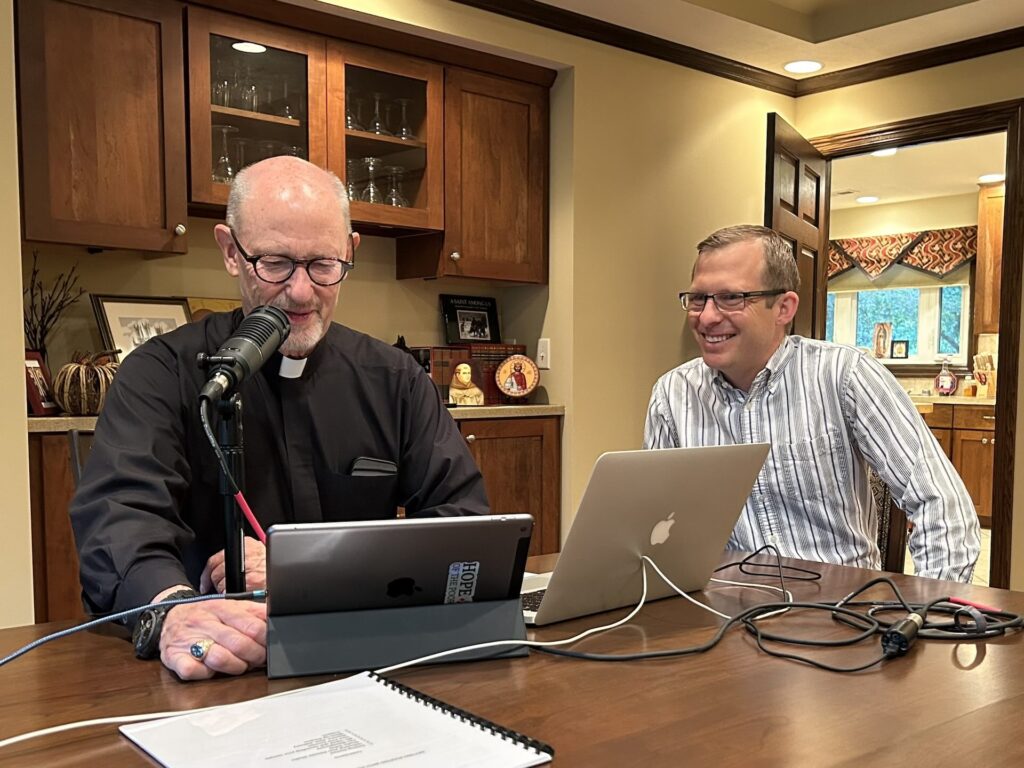Whether you live a life of charity or not will radically affect your view of God.
The man who buries his talent, who never exercises the gift of holy friendship, comes to believe false things about God.
He sees his master as a harsh, merciless, demanding judge, who wants us to serve him out of some desire for selfish gain.
If a man thinks of God like this, he is incapable of living a life of friendship with God, and, therefore incapable of heavenly joy.
He will not appreciate the gift of charity that was granted to him.
Only someone who loves God can appreciate this gift.
For a man who neglects the gift of charity, his attempts at goodness profit him less and less, until they profit him nothing.
Charity renders good only to those who are actively friends with God.
On the other hand, the more we desire to encounter God face to face and make daily acts of love, the more we will see God as he is: rich in mercy and abounding in compassion.
We will not think of God as a tyrant demanding some personal gain.
Instead, we will see the root of all the good that we do and possess as coming from God and drawing us back to him.
We will not see him as a harsh taskmaster who puts us through trials for his own mysterious amusement.
Rather, we will see him giving us just enough restlessness to keep driving us to the most perfect good we can imagine: eternal friendship with him.
We will see God bringing up fruit in our lives where the gift of charity had not previously extended.
Thus, he will gather where he did not sow, not out of desire for gain, but to extend his charity more fully into our life.
The fruits of charity will crop up in our work, while we drive, as we sit quietly at home, or in the middle of the supermarket.
Our entire life will be transformed by this divine friendship.
The ultimate fruit of this love is joy.
We rejoice when our friend is doing well, because our friend’s good exists, in a way, in us.
Our friend’s good is our good.
When we love God in charity, he dwells within us, and our life is found most fully in him (1 John 4:16).
Even in this life, therefore, we rejoice in the love of God.
But that joy is incomplete here.
As St. Thomas Aquinas writes, “In charity we rejoice in God’s goodness as much as we have a share in that goodness.
But our share in that goodness can be hindered [by sin, distraction, unhappiness in this life, or the like.
Therefore, in this life there is an admixture of sorrow to spiritual joy whenever a man grieves for something that hinders his or his neighbor’s share in God’s goodness”[1].
The more we love God, the greater our joy will be, and the more acutely we will feel those things that prevent us from sharing friendship with him.
Reflect on the wonderful gift of charity that we have considered over these last nine days.
God has poured his love into our hearts, so that he may abide with us and we with him (John 15:4).
He has given us a yearning for him, a restlessness amidst anything that limits our sharing in his goodness.
In this restlessness, we turn to God in friendship and extend that friendship to those around us.
As we make daily acts of love, we turn further away from sin, deepening our friendship with God and neighbor.
The more we do this, the more perfect will be our joy, when, at the end of life, we hear, “Well done good and faithful servant, enter into my joy, and be, at last, at rest.”
Ponder these words in your heart and let them be an impetus to ever deeper love, as you pursue eternal joy and rest.
- St. Thomas Aquinas, Summa Theologiae, II-II, q. 28, a. 2.




